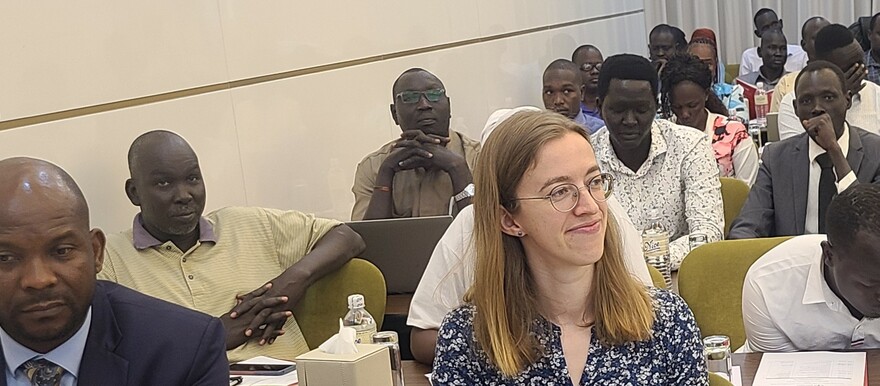A recent report from the United Nations Food and Agricultural Organization (FAO) underscores that conflicts in South Sudan are the leading cause of widespread food insecurity throughout the country. Conducted last year, the study aimed to assess the impact of conflict on food security and livelihoods in six states, seeking to identify the key causes and drivers of conflict.
The study covered six out of the ten states and one administrative area, including Central Equatoria, Jonglei, Unity, Upper Nile, Warrap, Western Bahr El Ghazal, and the Greater Pibor Administrative Area.
Meshak Malo, the FAO country representative, addressed reporters on Wednesday following the report’s release, emphasizing that the study’s key findings revealed national-level conflict dynamics as the primary drivers of food insecurity.
According to the report, factors such as intercommunal conflicts, the proliferation of small arms, forced displacement, economic recession, upcoming elections, and natural disasters contribute significantly to the challenges. These occurrences create fear, particularly among women, hindering their access to farms.
“The reduction in farming activities has had a detrimental impact on production capacity, income generation, and food security. Livestock destruction of crops not only diminishes productivity by destroying crops but also deters farmers from engaging in cropping activities due to uncompensated damage and loss,” remarked the senior FAO official.
Malo, however, highlighted in the report that not all states face food insecurity. Western Equatoria State boasts a high food production rate of 130%, but importing the excess 30% to urban centers proves challenging due to insecurity.
“Conflict has disrupted humanitarian activities, impacting the distribution of farm inputs and subsequent agricultural production. Cattle raids, mainly conducted by male youth, and conflicts between herders and farmers have significantly reduced livestock sector productivity by disrupting typical grazing and watering practices, leading to livestock loss through raids,” he explained.
Displacement, resulting in the unnecessary movement of cattle, has hindered South Sudan from producing milk, as constant movement reduces the cattle’s capacity to produce milk. “The heightened atypical migration, driven by conflict, increases the risk of livestock pests and diseases spreading when veterinary services are inaccessible,” clarified Malo.
“This negatively impacts livestock production and reproduction, affecting food availability at the household level and contributing to increased malnutrition rates among lactating women and children under five,” Malo emphasized.
Malo emphasized that achieving peace in South Sudan requires concerted efforts from both the national and state governments to ensure stability, enabling citizens to engage in farming. FAO is now collaborating with the Ministry of Peace Building to actively contribute to peace-building initiatives.
“Based on the findings, it’s evident that there are two essential levels for achieving peace and allowing South Sudan to transition from relying on food aid to producing its own food,” Malo stated. “The first level addresses national aspects, focusing on governance, including issues of elections, political stability, and economic concerns.”
Malo highlighted the need for significant efforts at the state level, involving both community and government levels, to contribute to peace-building initiatives.
Pia Philip Michael, the Undersecretary at the National Ministry of Peace-Building, affirmed that the FAO report aligns with the observations of the people of South Sudan. He pointed out that sub-national conflicts are the primary driver of food insecurity in the country. “The report scientifically confirms what we all observe. It’s evident that the key driver of food insecurity in the Republic of South Sudan is our intercommunal violence,” Michael stated.
He warned that as long as South Sudanese continue to be embroiled in conflicts, the country will remain food insecure. Michael urged citizens to actively engage in peace-building efforts rather than solely relying on the government for resolution.




